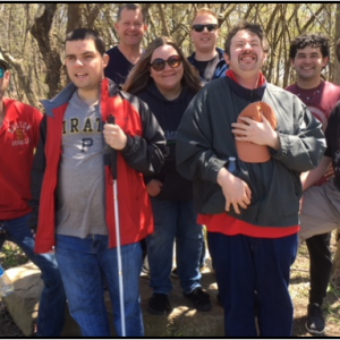Lifesharing means living with and sharing life experiences with supportive persons who form a caring household. Lifesharing is recognized as both a close personal relationship and a place to live. Lifesharers offer individuals the opportunity to be part of a family and to participate in community life. Lifesharers and individuals are carefully matched and supported by qualified professionals to achieve the person's program objectives. Birth families are encouraged to be part of the matching process and continue to have close relationships with individuals who choose a lifesharing option. Most lifesharing homes are licensed and inspected to ensure the health and well-being of individuals being served. Individuals in lifesharing also have supports coordinators to monitor the quality of services on a regular basis.
Everyday living options can be a variety of settings such as lifesharing, as well as support provided to individuals living in their own home and in the homes of relatives and friends. Services in these settings are authorized based on individual support plans and monitored by supports coordinators on a regular basis. Individuals who choose these options come from a variety of places including community homes and Intermediate Care Facilities.
We offer both Licensed and Unlicensed lifesharing opportunities here at Focus. Unlicensed Lifesharing is a program that allows families to provide care for a family member with an intellectual disability or autism in their private home. The family members can be biological relatives, such as parents, siblings, or grandparents. Lifesharing means living with and sharing life experiences with supportive persons who form a caring household. Lifesharing is recognized as both a close personal relationship and a place to live. Lifesharers offer individuals the opportunity to be part of a family and to participate in community life.

